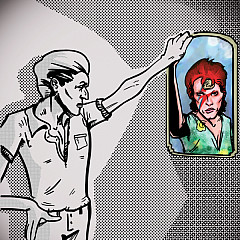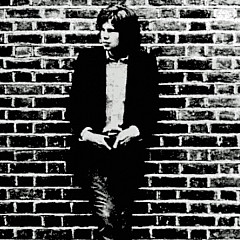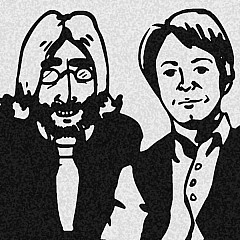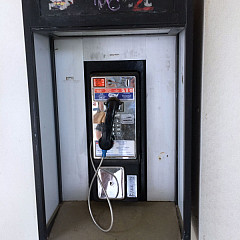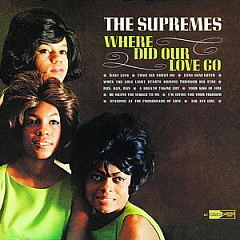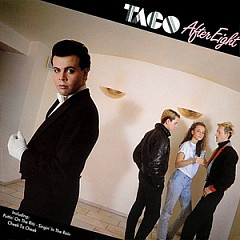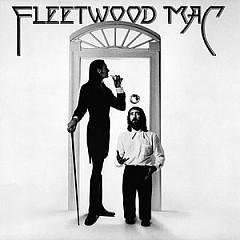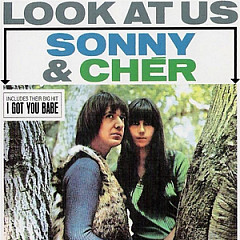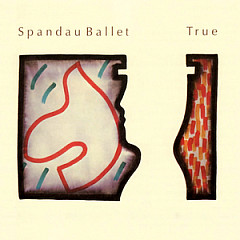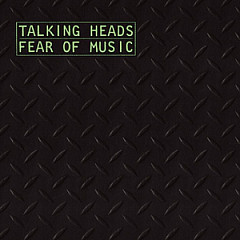 Shawna Ortega: When I talked to you in May, you had said that this CD was all about your divorce.
Shawna Ortega: When I talked to you in May, you had said that this CD was all about your divorce.Gretchen Peters: Right.
Songfacts: And in listening to this CD, through every song, I notice it goes through peaks and valleys where there's some that are just heart wrenching and others that are really hopeful. And then it goes back… and you know what? It actually reminded me very much of my own divorce.
Gretchen: Really?
Songfacts: So I can really, really relate to this. And I'm going to start with "Breakfast At Our House." The line in that song, specifically, that really, really speaks a lot to me, is "cold coffee in my cup, you turn the TV up." That just killed me, because to me it's like he's just shut down now, so there's just no more. Am I interpreting this correctly?
Gretchen: Yeah. If you've been there, you've been there. Anybody that's been there recognizes that, I think, as that stage where communications just shut down. It's that point of no return where there's too much anger, too much water under the bridge, too much pain, too much whatever, that there's sort of this point of no return from that.
Songfacts: And it's not even worth arguing about anymore.
Gretchen: Yeah. If you're separating a relationship, usually one party gets to that realization first. It's not usually arrived there simultaneously. I think the other thing I was really trying to get across in that song, and it's pretty subtle, but there comes this point at the same point when you almost start to be polite with each other, because the situation is so strained and so strange. So you don't even have the intimacy left to fight. And that point with the thing that really struck me was the saying that I really wanted to try and get that across. Because having been in the situation I just thought, wow, this is so weird. You get to the point where you've lost so much intimacy that you even feel that sort of weird, distant kind of politeness.
Songfacts: When you get to that point, you don't really expect certain behaviors from the other party anymore. So it's almost like you're acquaintances now, instead of having that connection anymore.
Gretchen: Yeah, exactly, that's what I was shooting for in that song. I mean, that makes it sound more calculated than it really is. Actually, that song was one that really poured out, basically, in one sitting. It wasn't as though I sat down and thought, Hmmm, well, this is what I'm going to try to convey here. I mean, it just kind of came out. You know, one of those.
Songfacts: Understood. Okay. Did you have a conscious decision to put the songs in the order that they are in? Because, to me it really tells a story, the order that they're in.
Gretchen: Well, not until after. That's called "sequencing," and I didn't sequence the album until after, but I will say that normally sequencing an album is pretty intuitive for me, and probably for anybody that does it. And there wasn't a whole lot of discussion at all about the sequence. It seemed pretty clear what it needed to be. Certain things were key for me, like, starting with "Ghost," it seemed like it just had to be the first song. I knew all along what the last song was going to be, pretty much I knew that "To Say Goodbye" would be the last song. It was very intuitive, and it just seemed like the right sequence. But no, I didn't have any idea, like, at the beginning of the project at all.
Songfacts: Okay. So you obviously didn't write the songs in the sequence that they're in, it just seemed that when you got down to kind of figure it out, that made sense there, that made sense there…
Gretchen: Yeah. No, no. In fact, the first song that I wrote for the album was "The Way You Move Me," actually.
Songfacts: Really? That was the first one?
Gretchen: Yep.
Songfacts: And that's a very wistful, kind of hopeful tune, I think.
Gretchen: Yeah, well I was… I was writing about somebody else.
Songfacts: Oh, you were?
Gretchen: Yeah (laughing). It was the first song I wrote, it was a kind of... it was a thing that happens to me a lot when I'm writing, which I call precognition. It has happened many times when I've written a song and the song has sort of come true later. And that was definitely the case with that one.
Songfacts: Can I be nosy and ask who you were writing it… you don't have to give me a name, but…
Gretchen: Well, in this whole course of this thing, I ended up falling in love with a man and ultimately living with, my piano player for a long, long time. At the time, 14 years I guess we've been playing together, touring together, doing everything together. We were old, old friends. And at that point we were still friends. But that who it is about.
Songfacts: And you wrote this when you were still married, but you were thinking about him?
Gretchen: I was still married, but I was dealing with how do I get out of this? How's this going to work? In a marriage of 23 years, which is not just a marriage, but a very complicated business relationship, too. It wasn't so much that I left one day. It was a coming undone that took probably a couple of years. So it's not as though there were a point where I left him and it was over. I think it's hard for people that haven't been together that long, and also with this added layer of the business relationship, which is a big part of a marriage, it's hard for them to understand just how unthinkable it is… just the logistics of it. How do we untangle this? I mean, how in the world do we untangle this? I think that we both knew at that point that it was going to have to be untangled. But it wasn't just like undoing a long-term marriage. There's all the business stuff. I mean, I was leaving my manager, my record producer, my booking agent, my publishing liaison, everything.
Songfacts: All wrapped into one person?
Gretchen: Yeah. So it was quite overwhelming. And it took quite a while to figure out how that was all going to work. It was terrifying.
Songfacts: Were you guys able to do it? Was it amicable? Do you still work together at all?
Gretchen: We don't work together. I mean, ultimately, although it's been an amicable divorce - and that's a loaded term. I don't really believe there's any divorce that's amicable, really. But, I mean, in the grand scheme of things, it was. But it became obvious to me that part of what I needed to do was give him the independence. And so I don't work with him any more. I needed, for a lot of reasons professionally, I really needed my freedom.
Songfacts: I'm right there with you. Oh my goodness, I so understand this. It floors me. Okay, well, let's bump over to "Summer People." Can you take me through that one? And then I do have a specific question for you.
Gretchen: Yeah, "Summer People," I had had that idea for the title for a while, because I grew up spending summers on the beaches of Long Island, when I lived in New York. And I was a summer person. I was one of those people that rented a house for the summer or whatever. And I was always really struck by the relationship of the locals with the summer people. And, of course, when I was a kid, there were summer romances. But there was this delineation between… it was a class delineation, but it was also, "Hey, we're the people that are always here. We're the ones that are heading in the winter, and the summer people just, they come and they go." And I just thought what a metaphor that would be for inconstancy. And I actually happened to be – when I wrote it, I actually happened to be at the beach. And I had the title for a while, but I finally sort of landed on this sort of hypnotic kind of groove in my head, and I was walking at the beach, and all of the lines started coming so fast, and I had nothing to write on. And I'm out there walking on the beach and thinking, Oh my God, I'm going to have to memorize these lines so that I still have them in my head by the time I get home. So I just kept walking, and more and more lines kept coming, and I kept memorizing. And I walked as fast as I could and got home. And I practically had the whole thing, all the verses written by the time I got back. It was just another one of those - it all just spilled out. I mean, it's all metaphor, that song. The whole thing.
Songfacts: Okay. My favorite line in this one is, "I think I'm going to call it quits. I've had enough of people leaving their messes for me clean up."
Gretchen: Yeah, that was pretty much the crux of this. (laughing) That was pretty much the crux of the thing right there. And again, I thought it was a great metaphor, because she's a waitress and she's got people walking out on her, on her check, and she's cleaning up people's messes, and it was just such a great metaphor for this person who's sort of stuck in this situation, and just watching people come and go, and feeling like she has no sort of control over her own circumstances.
Songfacts: To me, I'm kind of absorbing this and thinking that's actually how I felt during my divorce. Because, you know what – you just want to walk away. You don't want to stay here and try to clean this up. You're going to leave it to me to do this.
Gretchen: Yeah, well, there are all kinds of levels of that. There's one thing I learned going through this it's that everybody has a story and a side, and there is no "the way it is." There's however many people are involved, there are that many points of view. But I think that that's a lot of what people feel is whether you're emotionally left, or physically left. And those can be two completely different things. You can be married to someone who's physically there, but emotionally not at all. Or vice versa. And each thing brings its own set of problems. But for me, that song was just a metaphor. She was someone like this waitress in the song who was just in a position of being stuck, and feeling pretty powerless over her circumstances.
Songfacts: So there's never a time that you were a waitress?
Gretchen: No, I never was. I've written tons of songs about waitresses, I'm very interested in them, for some reason. I don't know why that is, but I never actually did that. I was a motel maid.
Songfacts: Really?
Gretchen: Really, the worst job in the world. But no, I never waited tables.
Songfacts: In a past life, maybe.
Gretchen: Possibly. Could have been, yeah. (laughs)
Songfacts: Okay. Now, can you tell me who "Jezebel" is? Are we talking in the biblical sense where you got this name?
Gretchen: No, I really wrote that song for myself. That's really me.
Songfacts: Is that like a pet name for yourself?
Gretchen: No. It's just when you are in the situation that I was in, you fall in love with somebody, and it's a complicated situation, you're married to someone else, the marriage is messy and untangling. Again, I think one of the things you learn in that situation is that some people are very quick to judge you, and some people aren't. And it's amazing where those lines get drawn. And I think that was probably one of the most painful things for me about the whole situation was realizing that people sort of overlay their own situation onto yours. If they feel threatened or judgmental or whatever, they'll overlay their own burden on your situation, rather than what we all should wish for, which is that people say, "You know there must be more to this than I realize. I'm not going to judge." Far be it for me to judge. I mean, that's the thing. I heard somebody say just the other day – it was a great quote about compassion. It was, "You learn how to have compassion for other people by desperately needing some yourself." And some people are incapable of giving it or having it, and feel compelled to judge. And normally it's the people that have been kicked around a little bit that know how to have it and where to find it. And that was just my observation on myself. That song was more purely written just for me than any song on the record. It was sort of my, I guess it was my manifesto, in a way. I was very much in love with someone, and I wanted to write from my own point of view, which was life is messy, love is messy, this happens, and because the circumstances are what they are doesn't make anybody guilty or not guilty, it's not black and white. These situations are never black and white. There are so many shades of gray. And that was purely my motivation for that. I think that was the most cathartic thing I wrote, for sure, on the whole record.
Songfacts: And I see the line, "In here they see the world as black and white and red."
Gretchen: Yeah.
Songfacts: I don't know why I'm kind of thinking of this, but the Jezebel in the biblical sense, was she somebody that betrayed… I probably got this wrong, but was she somebody that committed a betrayal?
Gretchen: She was a loose woman. Well, let me put it this way, I'm not a Jezebel expert. I used the term as a sort of shorthand for a woman… women in our culture are either virtuous or they're whores. There's no in between. And usually women who take what they want and have some power and are willing to talk about sex, or have it, or whatever, are cast as Jezebels, not as the other type. So I just used the name as a sort of a shorthand for a woman who's mature, and is with who she wants to be with, and is sexually free and all of that. Because it's convenient shorthand. Everybody knows that Jezebel was "a loose woman" or whatever. And it's the most sort of loaded term that I could come up with. Everybody knows that's a term of denigration. And I guess the thing I wanted to do was take it and make her a three-dimensional human character that you'd have compassion for, because we should.
Songfacts: Definitely. Okay, that explains it perfectly. "England Blues," is this another thing, kind of a last-ditch attempt "let's save our marriage"?
Gretchen: Well, actually "England Blues" is a completely autobiographical real factual account of all the traveling that we've done in England in the last three-four years. And one of the things that gave me unmitigated joy while I was going through a lot of hell was going on tour and playing music. Playing music for those people. And and my partner and I were touring, we toured… in the last three years we've done at least 7 or 8 tours over there. We've been over there a lot. So it was just trying to sort of convey the exhilaration and the fun that we felt. The happy memories of going over there.
Songfacts: Is it an easier crowd over there?
 Gretchen: It's… well… they're not easier. Well, they're very wonderful. They're very appreciative of lyrics, especially. They've been wonderful to me. For some reason I was the perfect fit over there, and I've been touring over there for 10, 11 years now. And I just, for some reason, it was a perfect fit between me and that audience. I have since started playing over here a lot more since then, but there is sort of an equivalent audience over here, but they're a folk audience. They're more on the folk circuit. They're very similar in that they're pretty well educated, they're well-read, they love lyrics, they love words, which is a perfect kind of an audience for me. But I wasn't really working in that world over here for 10 years. So that's a new audience for me. But I have a very, very, very soft spot in my heart for the English, because they embraced me as an artist from the very first album, and it's been kind of a love affair ever since.
Gretchen: It's… well… they're not easier. Well, they're very wonderful. They're very appreciative of lyrics, especially. They've been wonderful to me. For some reason I was the perfect fit over there, and I've been touring over there for 10, 11 years now. And I just, for some reason, it was a perfect fit between me and that audience. I have since started playing over here a lot more since then, but there is sort of an equivalent audience over here, but they're a folk audience. They're more on the folk circuit. They're very similar in that they're pretty well educated, they're well-read, they love lyrics, they love words, which is a perfect kind of an audience for me. But I wasn't really working in that world over here for 10 years. So that's a new audience for me. But I have a very, very, very soft spot in my heart for the English, because they embraced me as an artist from the very first album, and it's been kind of a love affair ever since.Songfacts: It's gotta feel like going home, maybe.
Gretchen: Yeah, it does. I mean, in a lot of ways it does.
Songfacts: "I just belong here." Who was your touring partner?
Gretchen: Well, the question is... Barry Walsh, who's on the record, the piano player.
Songfacts: And is he the subject of…?
Gretchen: He's the subject of all the happy songs.
Songfacts: Oh, is he? Yea, good for Barry. Okay, "The Lady Of The House."
Gretchen: "Lady Of The House" I wrote with David Mead, my friend David Mead. He sings on it, as well. And that was a really interesting song. He had the opening line, "Open up your suitcase and show me what you've got." And we didn't even know what that meant at first. And I can't remember who it was that came up with the idea of the traveling salesman, but I loved it immediately. And I thought of the title "The Lady Of The House," which I thought was what your typical salesman would say, "Is the lady of the house in?" and then show you something. But it also had this connotation to me of this woman that was sort of more a part of her house than she was a part of her marriage, kind of. There was just a connotation there somehow that intrigued me, and that I felt like I really identified with. And as David and I sort of developed the song, we talked about the song a lot. We talked about it like it was a screenplay or something, in terms of, you know, "what do you think her character's like?" and "What is she wanting from this guy?" And we thought a lot about character motivation and stuff, really, as if we were writing a screenplay. Because I was really interested in getting her personality in there, getting her dilemma in there. She's a very lonely woman who has come to the point where she feels like love could come from anywhere, or it could come from nowhere. And at the same time she's opened up to the possibility that even this salesman could be where she finds love. She's also got other layers there, like there's a line where she talks about his cheap suit, and she's slightly contemptuous of him, which is, I think, it's very real. It's how it really would be. I just felt like she was a character, not unlike the waitress in "Summer People." She was a character that I could identify with, and I could imbue with the visual content that I was feeling, and yet she's a fiction. It's not an autobiographical song in terms of the situation. But in terms of her emotional state, I felt very close to that character.
Songfacts: Can you explain the line to me, "I'm available, I think you understand." It's very lonely.
Gretchen: Yeah, it's a come-on, really. It's a come-on. And she's really trying to leave some kind of a door open. She's trying to open up on some level to somebody, because she's completely shut off, and she's just dropping a hint, essentially.
Songfacts: Okay.
Gretchen: It is lonely. It's lonely, and it's kind of desperate. And kind of sad. But I think real.
Songfacts: I'm picturing a gal opening up the door in a negligee.
Gretchen: There is the whole sort of cliché aspect of the typical traveling salesman, having an affair, or a one-night stand, or whatever it is with the housewife, and stuff like that. And that's kind of what we were playing on. What we wanted to do was pry underneath that, those layers of cliché, and look at what the emotional state of somebody like that, what was it really like. Again, it was about, she's drawing this character, and then, like as in "Jezebel," giving you some insight into her so that you felt compassion for her rather than, wow, what a desperate, sad woman. I mean, some of kind of compassion is there.
Songfacts: You are a writer who writes from your soul. And the words are very, very important to you. And I'm wondering what it's like to try and create a character that is not you. I know you must still put a lot of your soul into it, but as you and David were sitting there and you were writing this song, and you're talking about her like she is a third party, and she's a character that you've created. But is she a character that is very much like yourself, as the waitress? Or is it just something that you just completely…
Gretchen: Not necessarily. I mean, you can't avoid putting yourself – a lot of yourself – into characters. But sometimes they say things for you that you can't say yourself. Sometimes they're tougher than you are. I mean, sometimes they're different from you in ways that you wish you were. To me, writing for characters is exhilarating and freeing because of that – you can be someone else. To me it's really, really not unlike acting.
Songfacts: I was just thinking of that. It's got to be like an actor getting hold of a role that they would never think of being like that person in real life.
Gretchen: And it's a thrill. It's an absolute thrill. I tell new songwriters when I'm doing songwriting seminars and things like that, I tell them to watch "Inside The Actor's Studio." Because hearing an actor talk about inhabiting a role, there is so much you can learn about writing by hearing actors talk about what they do in inhabiting a role. There's just so much similarity.
Songfacts: That's intriguing. I like that analogy.
Gretchen: You have to let that person, that character, speak to you. You don't put things on… you don't overlay… "Okay, now I'm going to make her be this way." You create this character, but at some point the character lives and breathes and tells you, "This is what I would say in this song." "This is how I would put it." "This is what I would do." That's when it's really exciting, when you feel like you're onto a real life person. And of course, lots of your own self comes out in that. What I was dying to say, I think, came out in "Lady Of The House." And one thing that I was dying to say was, "This is what it feels like to be intensely lonely." But she's a different person, for sure.
Songfacts: You've got that in there, "You're invisible, the way that I am." That's intense.
Gretchen: Yeah.
Songfacts: I think you accomplished that. All right, "This Town" was a break-out favorite of mine.
Gretchen: Oh, good. That one is kind of like life. It's got a thread of sadness that goes through it a little bit. But it's upbeat. But it really actually came about because of Nashville. Because I had moved to downtown Nashville and I started thinking about the downtown, and thinking about how Nashville was in a funny kind of growing pains kind of stage. And there weren't a lot of groups back downtown, so there was this kind of emptiness there still. And I had moved downtown and I was feeling so great about it. But the town, it was a little bit sad and it's a little bit happy. I thought it would make a great metaphor for a person - the verse about "there's a hole in the middle where nobody goes." But it was happy, it was a happy song. But it acknowledges, I think, some sadness.
Songfacts: Oh, definitely. And the other one that was my breakout favorite is "To Say Goodbye."
Gretchen: Really?
Songfacts: That had a finality. That's like the final thing, it's like, okay, well you're not ready for this, and I'm not ready, but you know what? We both know what has to happen.
Gretchen: I'm glad to hear that, thank you. That was a really… what's the word… a little bit obscure, that song for me. In the sense that I never had a real sense of it being very linear. It does tell a story, I guess, but there's some obscurity in that in the way that I… songs that I admire are obscure, I always felt like it has eluded me. I always felt like I try to really have this urge to explain things, and make everything very clear in my writing. And I found that song to be more obscure than normal for me. And I was intrigued by that. I didn't know at all, I'd no way of judging whether that would come off, or people would just kind of cock their heads and go "What? What does that mean?" But you know what I mean? I left a lot more hanging in the ether with that lyric, I thought. And it was received really well, and I was so pleased by that, because it's encouraged me to go out on that limb a little more from time to time now, probably.
Songfacts: Oh yeah… I was talking to another songwriter just a couple of weeks ago who was saying he doesn't like it when people hit you in the face, and describe it. He says, "Show me, don't tell me."
Gretchen: Oh, absolutely. Yeah. And I really believe that. I have done that and sort of lived by that credo for a long time. I listen to a lot of music, especially I have in the last four or five years, that's more obscure even than that. I listened to a lot of Bob Dylan during the whole time I was making this record. And I listened to a lot of other stuff where lyrically some of it's just mysterious. Some of what's going on is just mysterious. And I've always admired that, and I've never been particularly facile at it. And I think part of it is the natural influence on me. For all where I believe in "paint me the picture, don't tell me the story, but paint me the picture," I've painted the picture with lots of details, and there's no mistaking exactly what's going on. Pick a song like "Independence Day," I mean, you know everything that happens there. And I just felt like this song was a little bit more elusive, and I was just so pleased that it came together and retained that elusiveness about it. There's something a little bit mystical about it, it's like no one in that song comes to any conclusions. It's just over.
Songfacts: "I'm not leaving, I'm just going."
Gretchen: Yeah, it's like finality, but nothing's tied up neatly, there's no conclusions, it's just over.
Songfacts: Neither of us are ready, but this is what has to happen.
Gretchen: Yeah.
Songfacts: Okay… well, I have taken up almost 40 minutes of your time. I don't know what kind of schedule you're on, but I've got a couple of older ones that I wanted to ask you about, if you've got time.
Gretchen: I've got about 10 more minutes, we can squeeze something in there if you want.
Songfacts: Okay, one that I wanted to ask you about last time, "Eddie's First Wife."
Gretchen: Oh. (laughs)
Songfacts: Can you take me through that one?
Gretchen: Well, the way that song came about is so bizarre. I was reading New Yorker Magazine and there was an article about an art exhibit that happened in New York. I'm pretty sure it was New Yorker. And there was a painting illustrated, a picture of a painting in this article. And the title of the painting was "Eddie's First Wife." And it was a painting of a kitchen, an empty kitchen, circa 1963, very early '60s. Almost looked like an ad for Frigidaire or something like that, it was that kind of style. But it was very ironic, supposed to be very ironic. It was titled "Eddie's First Wife," and it just intrigued me. I just thought, I want to write the story of what happened in that kitchen. Why is the kitchen empty? Who was Eddie's first wife? And my mind just went from there. I just thought, Well, something clearly happened here, and she's not in the kitchen anymore, so she's flown the coop. What was it that happened? And I don't know, I just got this whacked out story that she left him for another woman. I can't fault her, because I sort of envisioned Eddie as being this hapless guy from 1963. I just pictured it all in that kitchen, and I thought, well, he's this unsuspecting, hapless guy. And what would be the thing that would happen to a guy like that that would come from left field? What would be the most unimaginable thing for him that could happen? That was it. And it allowed me to use a couple of icons, like Brigitte Bardot and Betty Crocker. Just a little bit of skewering of the domestic stereotypes.
Songfacts: This lyric I appreciate a lot. You allude to everything, all of the rest of the words in the song, but the one line that hits you is "She's a good old-fashioned girl." And then you think, Wait a minute. And that came from nowhere. I appreciated that. That was great.
Gretchen: It's a lot of fun playing that song. If people haven't heard it, they really don't know what's coming. It's a lot of fun.
Songfacts: Good. That epitomizes one of the Gretchen Peters' songwriting gifts.
Gretchen: Thank you. I'll take that one to the bank. It's one of the most oddball songs I've written, but I love writing songs like that.
Gretchen: Well, you know, he pays me. They have to pay me every time they play it. And I don't have any control over whether they play it or not. I can't make them stop. I don't agree with the guy on anything. But they do pay me. I guess I feel kind of… it puts me in slightly better position to support the causes I believe in.
Songfacts: That's irony.
Gretchen: I mean, I wonder… I know that he's using it… I know he's completely disregarding what the song's about. It has nothing to do with patriotism or anything like that. But that's an old story. That's a really old story. I think it was Reagan who used "Born In The U.S.A." for his campaign song. And I wanted to say, Hey, have you listened to that song? It's about the Vietnam War – hello? So that goes on all the time. And I just figure, as long as they pay and that gives me the wherewithal to support causes that I believe in, it all works out in the end.
Songfacts: More power to it.
Gretchen: Yeah.
Songfacts: This is something I've never asked another songwriter, and I want to get your thought on this. How do you feel when you've got a song that is really personal to you, and it gets picked up by another artist and they turn around and put their own spin on it, and their own interpretation – are you just happy that they liked your song so much that they wanted to do it? Or does it kind of bug you a little bit that it's not done in the way that you wanted it to be?
Gretchen: Well, I mean, there's two things there. They can't change it. I don't take kindly to that. And the only time that a songwriter has any control over whether, for instance, a lyric gets changed is… well, that's not true, I shouldn't say that – let me rephrase that. The only thing a songwriter has control over, really, is fundamental substantial changes in their song. You can't take one of my songs and change the lyric without permission. And that is my, I guess, my guarantee that my song will be represented the way it was written. You can't control how somebody treats it musically, you can't control whether they do a reading of the song that totally misses the point, or the emotional content or whatever. You just can't control it. And wishing that you could control it is an exercise in futility. So I guess I don't worry about it much. I guess I'm lucky, because my records are my outlet. I can say exactly what I want artistically on my record, and at that point I'm happy if someone wants to record it. I mean, I've also been really lucky, too. I've been lucky that for the most part I've had a group of really great artists that have chosen to record my songs, and have done some really beautiful versions. Having been on both sides of the equation, I have a lot of understanding and respect for the recording classes, and an artist who doesn't write has to make a song his own or her own.
Songfacts: That's a good point.
Gretchen: I mean, they're singers, they're interpreters. That's what they have to do. So, I mean, I guess I feel like I have quite a bit of empathy and understanding for that. And I encourage it. I mean, I've had songs recorded that were taken and interpreted so differently… the Neville Brothers did a version of my song "Over Africa" that was so different I didn't recognize it at first. And I feel like, more power to 'em, they're being the Neville Brothers. Now it's a Neville Brothers song. So it really doesn't bother me. I certainly have versions of my songs that I like better than others, certainly.
Songfacts: Do you have a favorite?
Gretchen: I have a few favorites. I've come to really appreciate – I always did, but I've really come to appreciate what Martina did with "Independence Day." In the sense that I don't think that song ever belonged anywhere but with her. I loved Etta James' version of "Love's Been Rough On Me." I'm just thrilled that she cut one of my songs. And anything Jimmy LaFave records of mine, I'm thrilled about. I love both – he's cut two of my songs, and I love both of them. And the other one that I feel like was just a perfect fit between song and artist was "You Don't Even Know Who I Am" by Patty Loveless. It was just meant to be.
Songfacts: Did you ever cut that one?
Gretchen: No. Well, I cut it on a live album, a version of it on my live album. But once I heard her do it, I thought, that's that. I mean, that was that. The same reason I couldn't cut "Independence Day," although I did release a demo. My record label wanted a bonus track on a re-release that we did, and I gave him the demo of "Independence Day," but I wasn't going to go back in the studio and re-record it or anything. What's the point, really?
Songfacts: How do you feel about Carrie Underwood's version?
Gretchen: Well, you know what? I really only heard it the one time. I don't watch TV at all, and my friend called me – my friend who's really addicted to American Idol called me and said, "Carrie Underwood's doing your song." And I asked him, "What are you talking about?" I really hadn't watched… I had no idea what kind of a phenomenon American Idol was. I had no real idea. And I ran to the TV and turned it on, and realized I don't know what channel it's on, and I missed the whole thing. And then I guess she did it one more time… she only did like a part of it at the end, I guess. And I did see that. And that's the only time I've ever heard it. But she's quite a singer.
Songfacts: She released it on her first release.
Gretchen: Well, it was a B-side, but I don't even have that. I don't even have a copy of it. (laughs)That's sad, isn't it? They should send me one.
Songfacts: I would think they would.
Gretchen: I mean, the least they could do… I'm sure I could get one. But I mean, I just remember basically hearing that one part of it on TV the one time. It was really funny, too, because my friend was trying to convey to me, you know, "You don't understand – millions of people are watching this." And I was like, "Really? Really?"
Songfacts: You're thinking, Wow, it's going to get a whole new life, because it's been quite a long time.
Gretchen: I just had no idea, yeah. That song's had so many lives, it's just amazing.
Songfacts: Yeah. Carrie Underwood can do it justice, even by Martina's standards. So that should make you feel good.
Gretchen: She's quite a singer. I mean, it's not an easy song to sing, so I was impressed.
July 17, 2007
Learn more about Gretchen at gretchenpeters.com
More Songwriter Interviews


